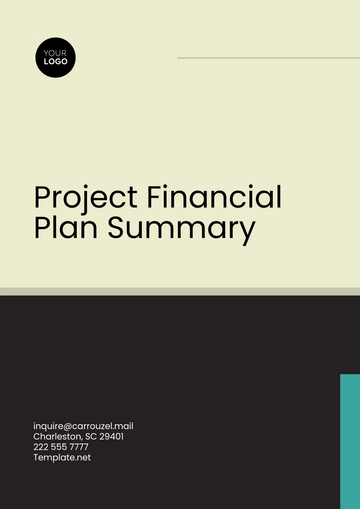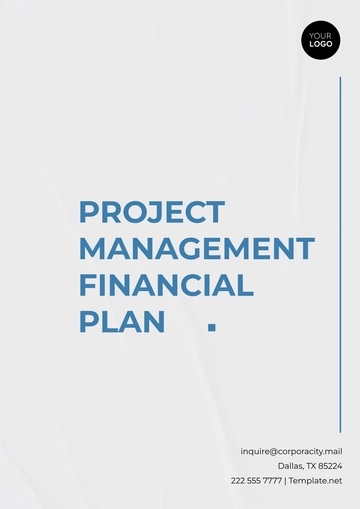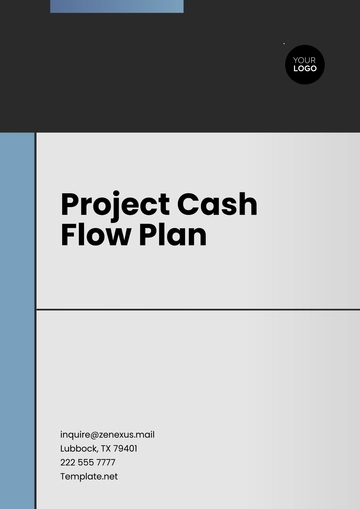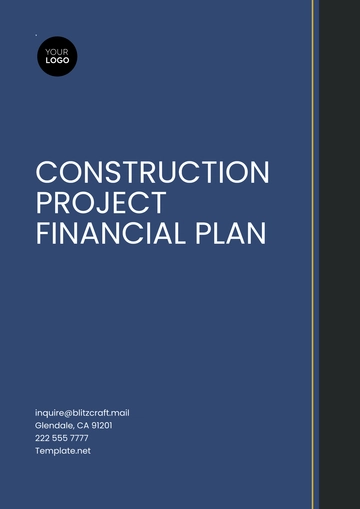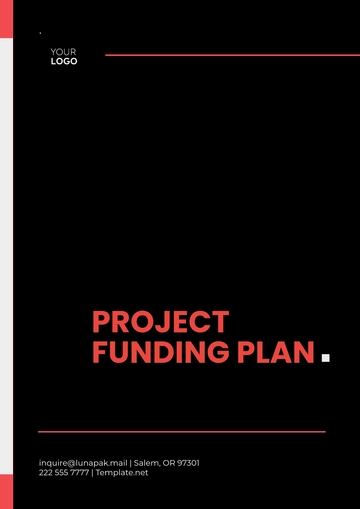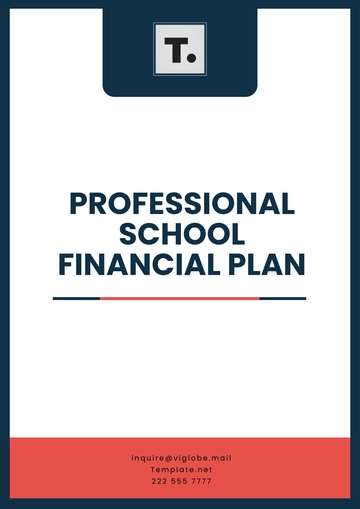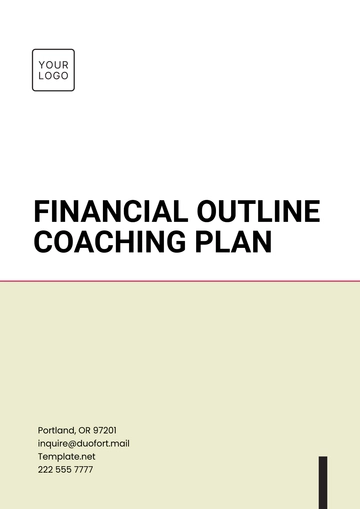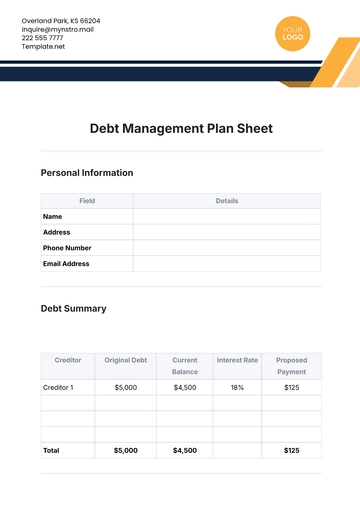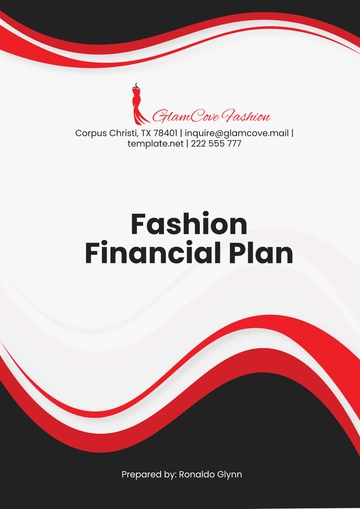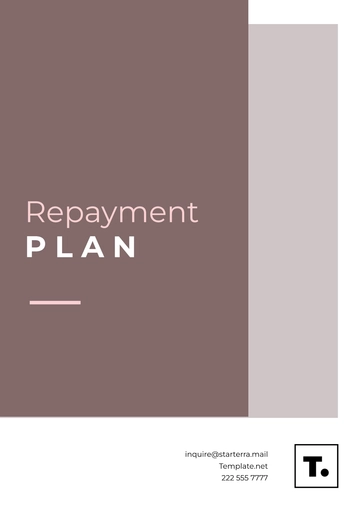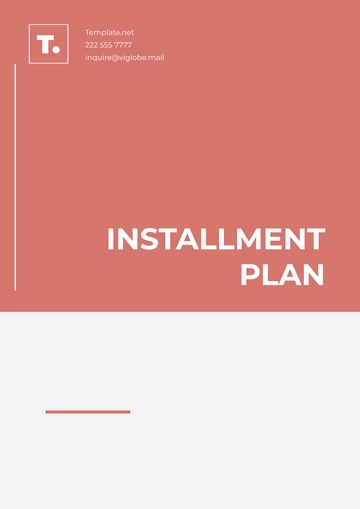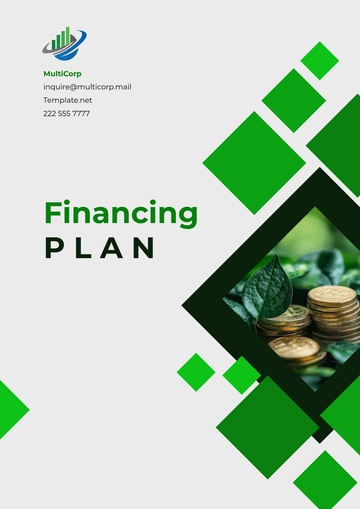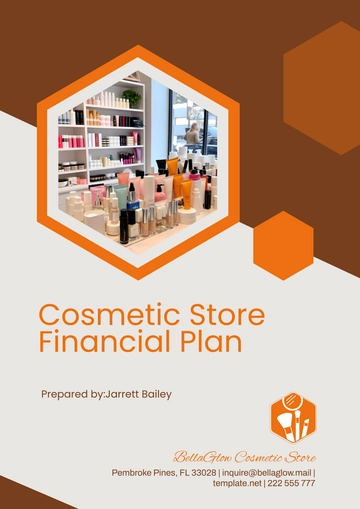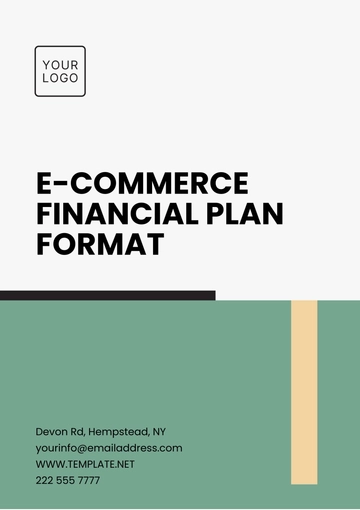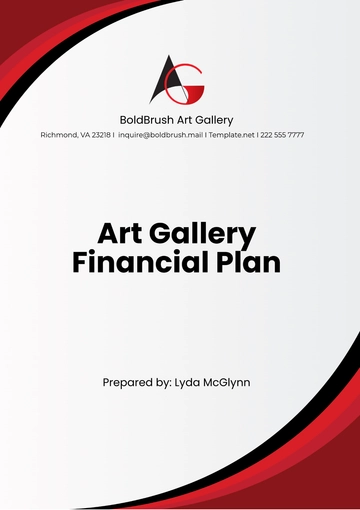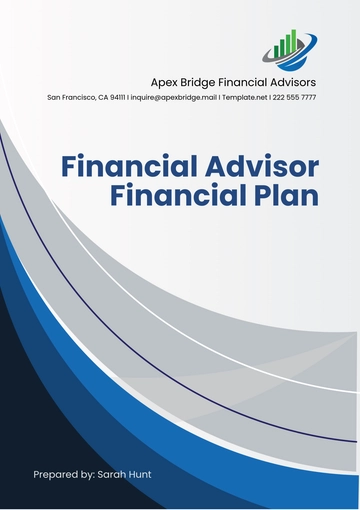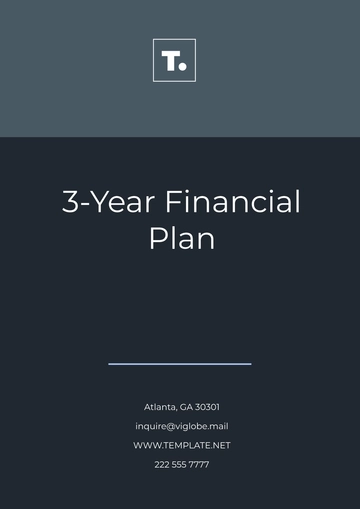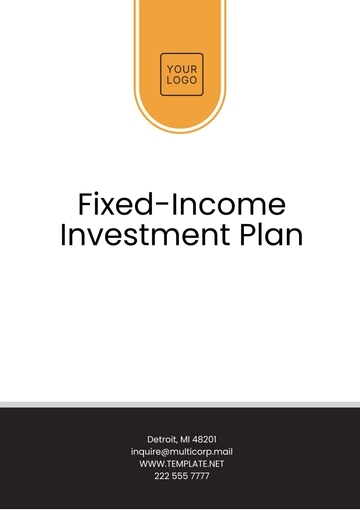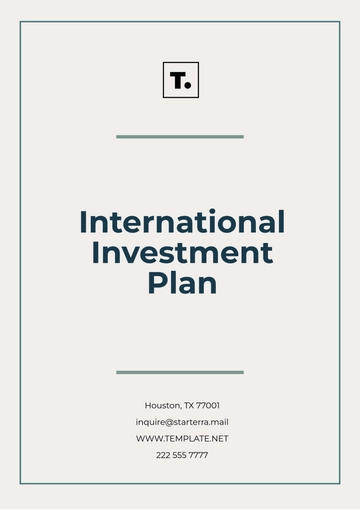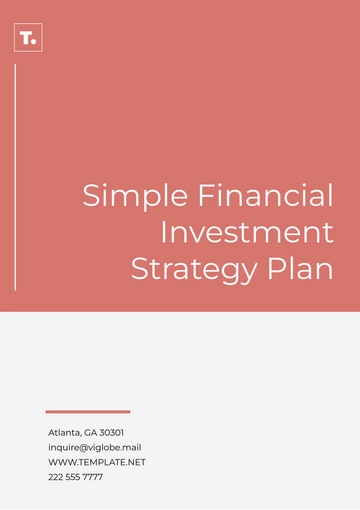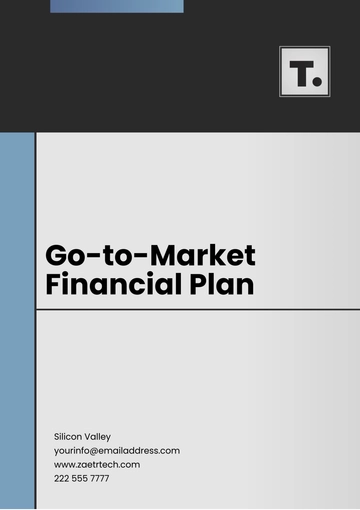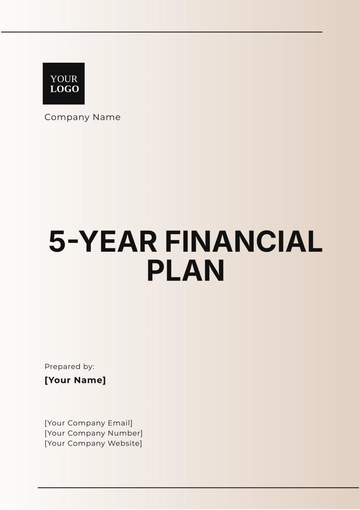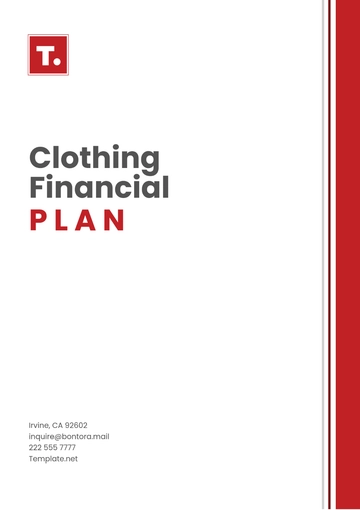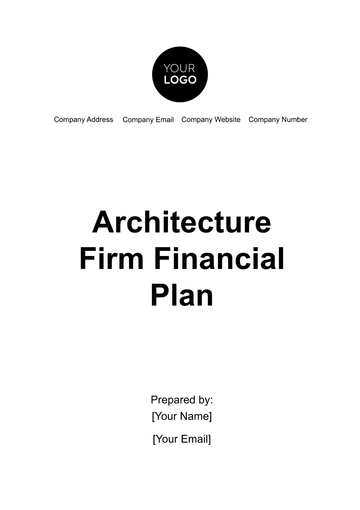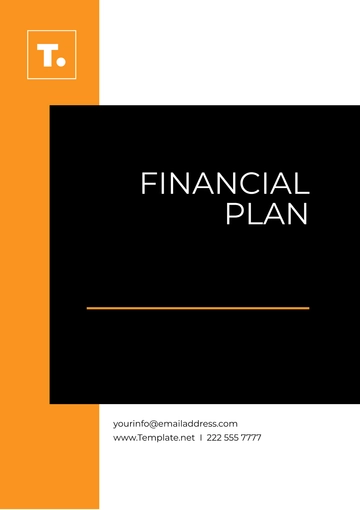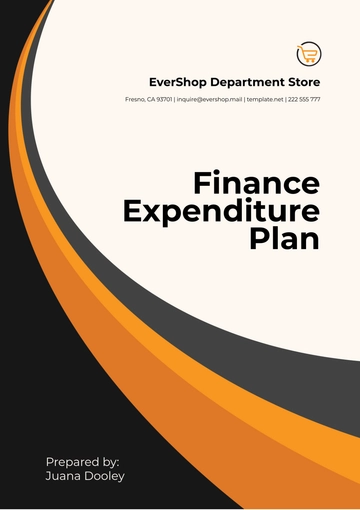Free Art Gallery Financial Plan
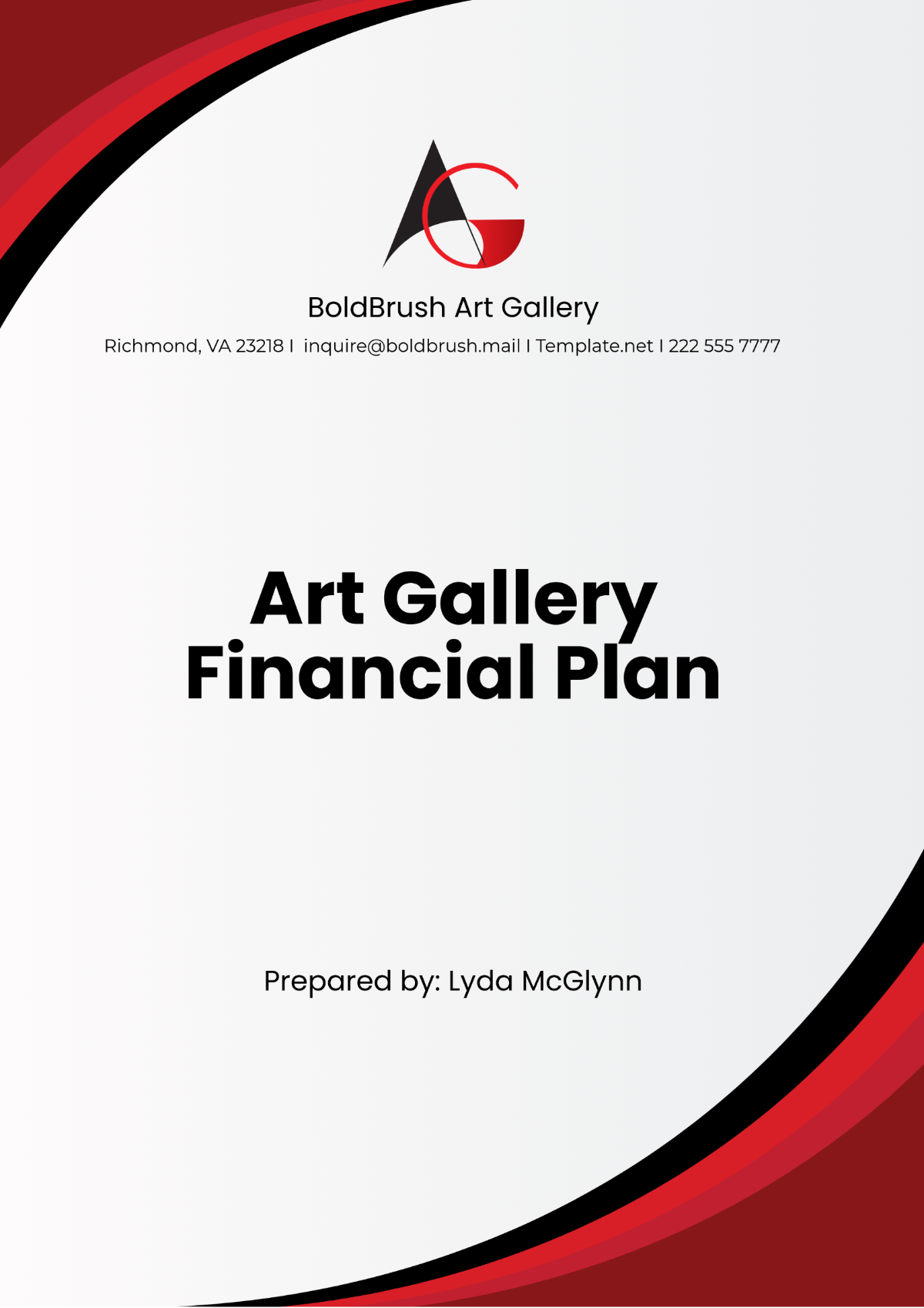
I. Executive Summary
This financial plan outlines the strategic financial objectives for [Your Company Name], a dedicated art gallery aiming to create a sustainable and engaging exhibition space. Our primary revenue streams include art sales, exhibition fees, membership programs, and educational workshops. By fostering partnerships with local artists and organizations, we aim to diversify our offerings and attract a wider audience. This financial strategy is designed to ensure that our operations remain viable while contributing positively to the local art community.
Projected expenses will include operational costs, marketing efforts, facility maintenance, and artist support programs. To achieve our profitability goals, we aim to break even within the first two years of operation, with a target profit margin of 15% by year three. We will also seek funding through grants, sponsorships, and community initiatives to support our programming and outreach efforts. This comprehensive approach not only positions [Your Company Name] for financial stability but also emphasizes our commitment to enriching the cultural landscape of our community. By prioritizing transparency and accountability, we will build trust with our stakeholders and ensure that we effectively utilize our resources to support artists and engage the public.
II. Goals and Objectives
The primary financial goals of the Art Gallery include:
Establishing a balanced budget within the first fiscal year.
Achieving a 15% profit margin within the first three years.
Expanding revenue streams through diverse art exhibitions and events.
A. Short-term Objectives
The short-term objectives focus on building a stable financial foundation:
Launch the gallery with a minimum of five artists' exhibitions.
Establish partnerships with local businesses for sponsorships.
Implement a membership program to create a consistent income stream.
B. Long-term Objectives
The long-term objectives aim at growth and market expansion:
Expand gallery space to accommodate more exhibitions annually.
Develop an online store to sell artwork globally.
Introduce art educational programs and workshops.
III. Financial Overview
This section provides a detailed financial overview including startup costs, revenue projections, operating expenses, and cash flow statements.
A. Startup Costs
Expense Description | Estimated Cost |
|---|---|
Lease and Renovations | $50,000 |
Art Display Installation | $15,000 |
Marketing and Promotion | $10,000 |
Operational Supplies | $5,000 |
Total Startup Costs | $80,000 |
B. Revenue Projections
Revenue streams include art sales, special events, and membership programs.
Year | Projected Revenue | Revenue Source |
|---|---|---|
Year 1 | $100,000 | Art Sales, Memberships |
Year 2 | $150,000 | Art Sales, Memberships, Events |
Year 3 | $200,000 | Art Sales, Memberships, Events, Online Store |
C. Operating Expenses
Annual operating expenses include personnel, utilities, and miscellaneous costs.
Expense Category | Annual Cost |
|---|---|
Staff Salaries | $60,000 |
Utilities and Maintenance | $20,000 |
Marketing and Promotion | $10,000 |
Miscellaneous | $5,000 |
Total Operating Expenses | $95,000 |
D. Cash Flow Statement
The cash flow statement highlights the projected financial liquidity of the Art Gallery.
Year | Opening Cash Balance | Closing Cash Balance |
|---|---|---|
Year 1 | $0 | $25,000 |
Year 2 | $25,000 | $80,000 |
Year 3 | $80,000 | $135,000 |
IV. Funding Requirements
To achieve our financial objectives, [Your Company Name] requires an initial investment of $80,000. This funding is crucial for covering essential startup costs, including lease agreements, renovations, gallery setup, and initial inventory acquisition. A significant portion of these funds will be allocated to marketing efforts aimed at establishing our brand within the community and attracting a diverse audience.
In addition to the initial investment, we anticipate the need for additional rounds of funding in subsequent years to support growth initiatives and expand our programming. This may include funding for special exhibitions, community outreach programs, and enhanced marketing strategies to elevate our presence and engagement. We plan to explore various funding sources, such as grants from arts foundations, partnerships with local businesses, and crowdfunding campaigns. By securing these resources, we aim to build a robust operational framework that not only supports the gallery's growth but also contributes to the sustainability of local artists and the broader art community. With careful financial management and strategic investment, [Your Company Name] will be positioned to flourish as a premier destination for art lovers and artists alike.
V. Conclusion
This financial plan provides a structured approach to ensuring the financial stability and growth of [Your Company Name]. By establishing clear revenue streams, effectively managing expenses, and securing necessary funding, we are laying a solid foundation for our operations. Our focus on community engagement and partnerships will not only drive visitor traffic but also create a supportive environment for local artists to thrive. With the right financial strategies in place, we are poised to become a vital part of the cultural fabric of our community.
Through strategic planning and strong financial management, [Your Company Name] aims to foster cultural enrichment and support the art community effectively. We are committed to transparency and accountability, ensuring that all stakeholders are kept informed and involved in our journey. As we move forward, we will continuously assess our financial health and adapt our strategies to meet changing needs. By prioritizing sustainability and artistic expression, we envision a gallery that inspires creativity, cultivates talent, and serves as a catalyst for community engagement in the arts for years to come.
- 100% Customizable, free editor
- Access 1 Million+ Templates, photo’s & graphics
- Download or share as a template
- Click and replace photos, graphics, text, backgrounds
- Resize, crop, AI write & more
- Access advanced editor
Organize your gallery’s finances with this Art Gallery Financial Plan Template from Template.net. This customizable and editable template provides a detailed framework for budgeting, forecasting, and financial analysis. Fully editable in our Ai Editor Tool, you can adjust each section to fit your gallery’s specific financial goals, ensuring a comprehensive and well-structured financial plan.
You may also like
- Finance Plan
- Construction Plan
- Sales Plan
- Development Plan
- Career Plan
- Budget Plan
- HR Plan
- Education Plan
- Transition Plan
- Work Plan
- Training Plan
- Communication Plan
- Operation Plan
- Health And Safety Plan
- Strategy Plan
- Professional Development Plan
- Advertising Plan
- Risk Management Plan
- Restaurant Plan
- School Plan
- Nursing Home Patient Care Plan
- Nursing Care Plan
- Plan Event
- Startup Plan
- Social Media Plan
- Staffing Plan
- Annual Plan
- Content Plan
- Payment Plan
- Implementation Plan
- Hotel Plan
- Workout Plan
- Accounting Plan
- Campaign Plan
- Essay Plan
- 30 60 90 Day Plan
- Research Plan
- Recruitment Plan
- 90 Day Plan
- Quarterly Plan
- Emergency Plan
- 5 Year Plan
- Gym Plan
- Personal Plan
- IT and Software Plan
- Treatment Plan
- Real Estate Plan
- Law Firm Plan
- Healthcare Plan
- Improvement Plan
- Media Plan
- 5 Year Business Plan
- Learning Plan
- Marketing Campaign Plan
- Travel Agency Plan
- Cleaning Services Plan
- Interior Design Plan
- Performance Plan
- PR Plan
- Birth Plan
- Life Plan
- SEO Plan
- Disaster Recovery Plan
- Continuity Plan
- Launch Plan
- Legal Plan
- Behavior Plan
- Performance Improvement Plan
- Salon Plan
- Security Plan
- Security Management Plan
- Employee Development Plan
- Quality Plan
- Service Improvement Plan
- Growth Plan
- Incident Response Plan
- Basketball Plan
- Emergency Action Plan
- Product Launch Plan
- Spa Plan
- Employee Training Plan
- Data Analysis Plan
- Employee Action Plan
- Territory Plan
- Audit Plan
- Classroom Plan
- Activity Plan
- Parenting Plan
- Care Plan
- Project Execution Plan
- Exercise Plan
- Internship Plan
- Software Development Plan
- Continuous Improvement Plan
- Leave Plan
- 90 Day Sales Plan
- Advertising Agency Plan
- Employee Transition Plan
- Smart Action Plan
- Workplace Safety Plan
- Behavior Change Plan
- Contingency Plan
- Continuity of Operations Plan
- Health Plan
- Quality Control Plan
- Self Plan
- Sports Development Plan
- Change Management Plan
- Ecommerce Plan
- Personal Financial Plan
- Process Improvement Plan
- 30-60-90 Day Sales Plan
- Crisis Management Plan
- Engagement Plan
- Execution Plan
- Pandemic Plan
- Quality Assurance Plan
- Service Continuity Plan
- Agile Project Plan
- Fundraising Plan
- Job Transition Plan
- Asset Maintenance Plan
- Maintenance Plan
- Software Test Plan
- Staff Training and Development Plan
- 3 Year Plan
- Brand Activation Plan
- Release Plan
- Resource Plan
- Risk Mitigation Plan
- Teacher Plan
- 30 60 90 Day Plan for New Manager
- Food Safety Plan
- Food Truck Plan
- Hiring Plan
- Quality Management Plan
- Wellness Plan
- Behavior Intervention Plan
- Bonus Plan
- Investment Plan
- Maternity Leave Plan
- Pandemic Response Plan
- Succession Planning
- Coaching Plan
- Configuration Management Plan
- Remote Work Plan
- Self Care Plan
- Teaching Plan
- 100-Day Plan
- HACCP Plan
- Student Plan
- Sustainability Plan
- 30 60 90 Day Plan for Interview
- Access Plan
- Site Specific Safety Plan

